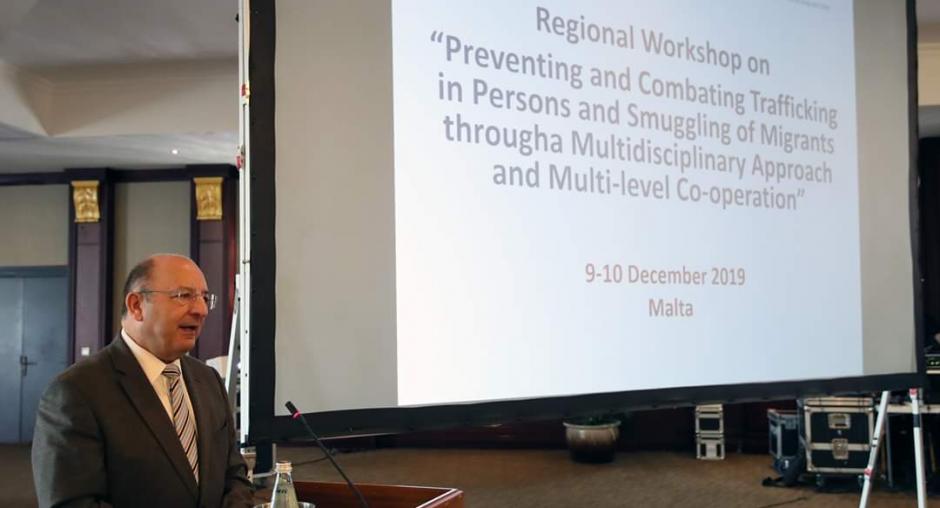Regional workshop in Malta explores how to combat human trafficking and migrant smuggling through a multi-disciplinary approach and multi-level co-operation

How to combat human trafficking and the smuggling of migrants through a multi-disciplinary approach and multi-level co-operation was the focus of a regional workshop for government and law enforcement officials held in Valletta on 9 and 10 December 2019.
The workshop was organized by the Strategic Police Matters Unit of the OSCE’s Transnational Threats Department (SPMU), in joint co-operation with the Human Trafficking and Migrant Smuggling Section of the Organized Crime and Illicit Trafficking Branch of the United Nations Office on Drugs and Crime (UNODC) and the International Organization for Migration-the UN Migration Agency (IOM).
Representatives of 16 countries - Bosnia and Herzegovina, Bulgaria, Egypt, France, Greece, Hungary, Italy, Lithuania, Montenegro, Morocco, North Macedonia, Serbia, Spain, Turkey and Ukraine, as well as host Malta – shared their experiences in this area.
“Addressing human trafficking requires co-operation among several stakeholders,” said Michael Farrugia, Malta’s Minister for Home Affairs and National Security, opening the event. “Malta enhanced such co-operation through the creation of a high-level monitoring committee, involving representatives of different ministries, that focuses on policy issues, and the creation of a stakeholder taskforce that focuses on an operational level.”
Malta’s Parliamentary Secretary for Reforms, Citizenship and Simplification of Administrative Processes Julia Farrugia Portelli also addressed participants on the importance of involving non-government actors and the private sectors.
Over the course of the discussion, participants explored community-based approaches and cross-border community co-operation, where both law enforcement officials and civil society organizations work in partnership to conduct assessments and collect preliminary information on both victims and perpetrators. Participants noted that both approaches have the potential to effectively prevent the incidence of future crimes.
They acknowledged the need to establish professional multidisciplinary teams, which should address migrants’ vulnerabilities in a more effective manner as well as allow for the conduct of joint investigations that support the effective prosecution of criminals.
Participants also highlighted the importance of assessing the vulnerability of individuals or groups of people on the move at an early stage, which requires a holistic evaluation of the risk and protection factors.
The event is a continuation of the partnership established in 2014 between SPMU, IOM and the UNODC in the area of countering multi-disciplinary organized crime.
